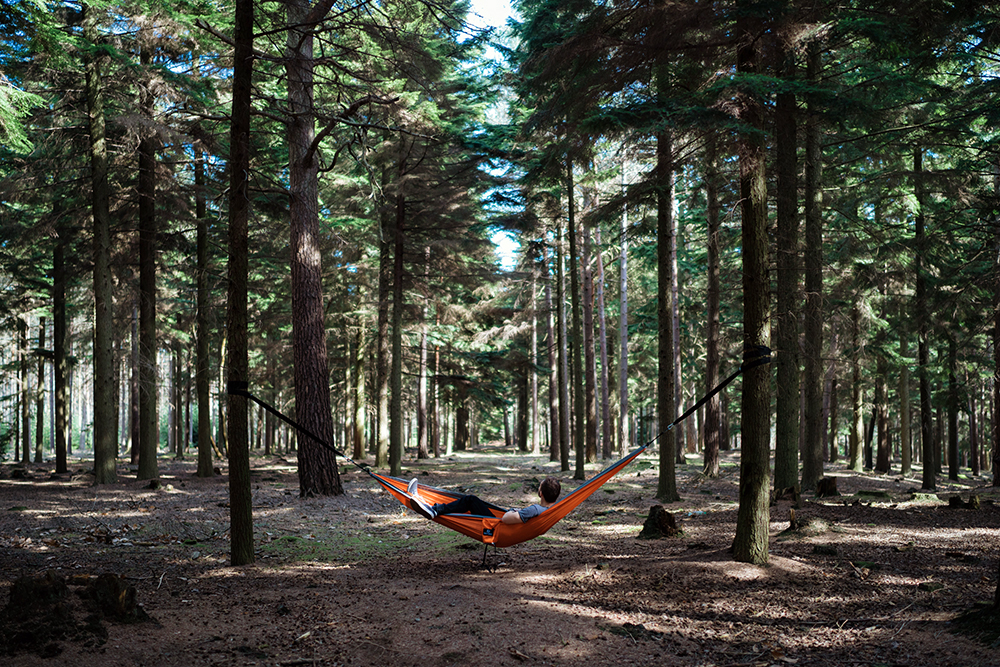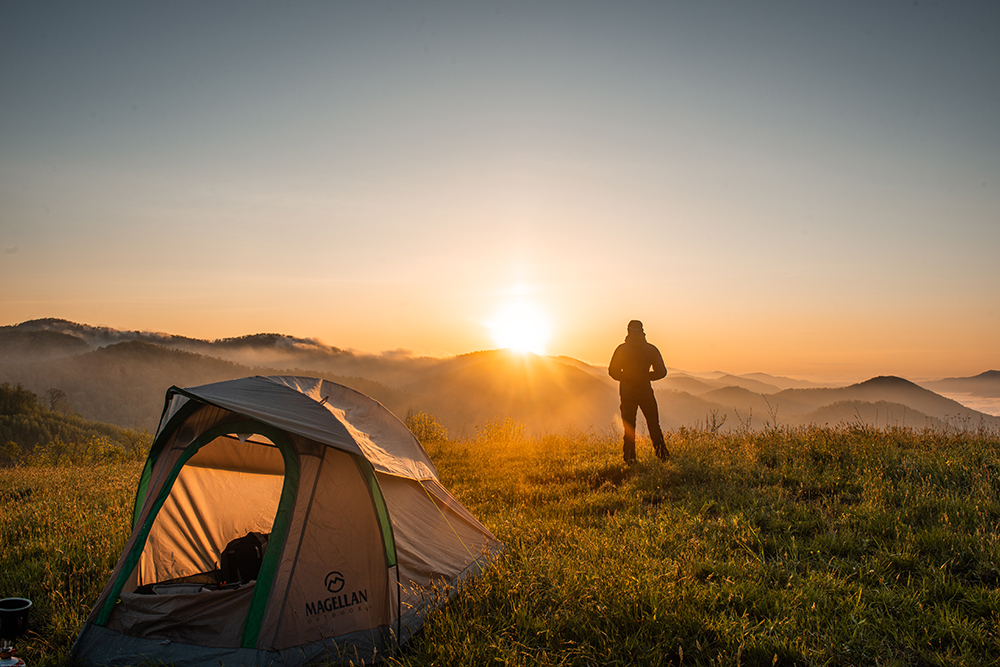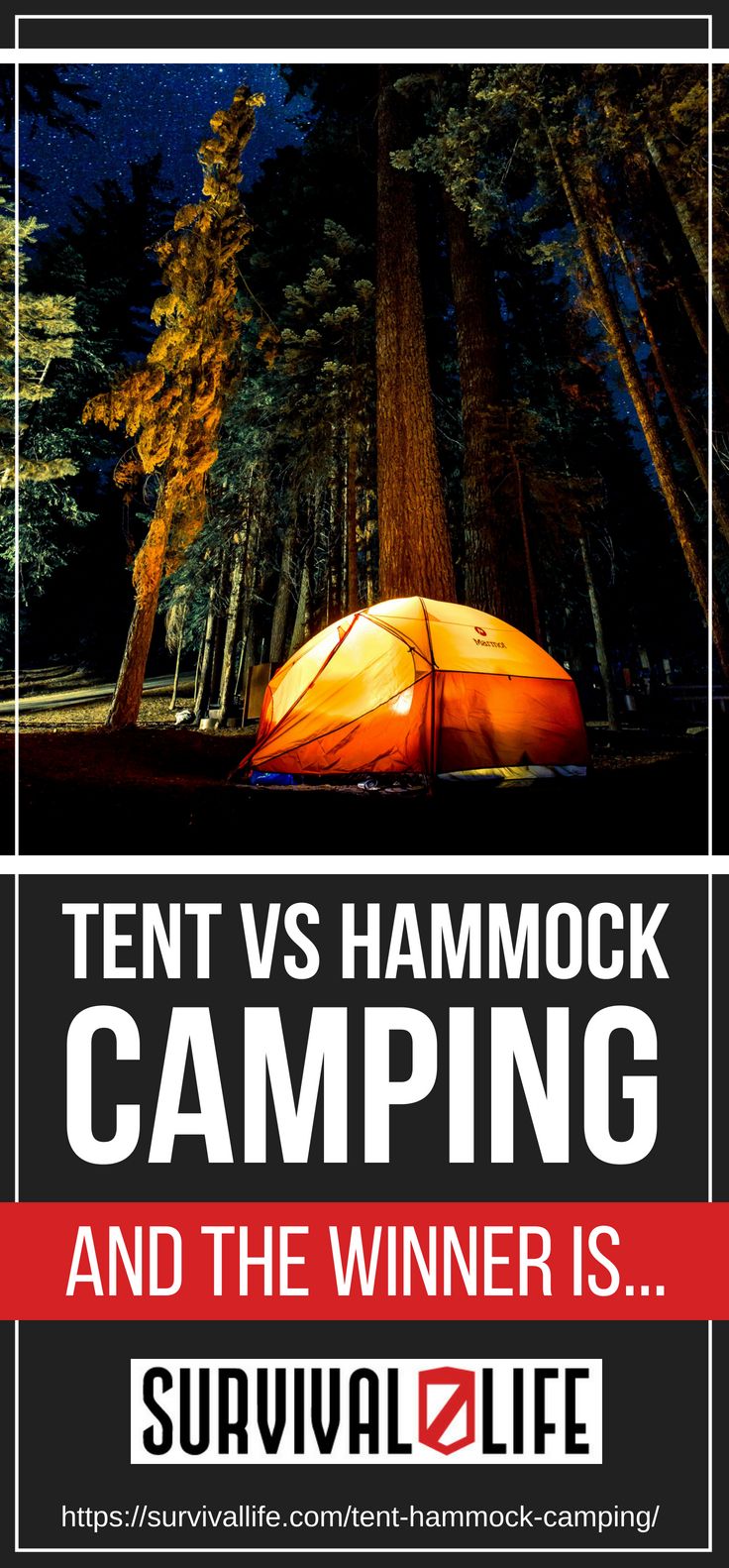The issue we have to settle: tent or hammock? Camping hammocks have exploded in popularity in recent years, but are they all cracked up to be?
Over the past year, I have been toying around with my camping hammock to see how it measures up to my tent. The results might surprise you. Before trying hammock camping for yourself, check out our guide to basic hammock camping.
Tent or Hammock | Hammock Camping Tips and More!
In this article:
- Advantages of a Hammock
- Disadvantages of a Hammock
- When Is a Camping Hammock Better?
- When to Stick with Your Tent and Avoid Camping Hammocks?
Advantages of a Hammock
1. Trees Are Everywhere
At first glance, the camping hammock seems far more restrictive than the traditional tent – at least when it comes to finding the perfect spot to crash for the night. Surely, it is a pain in the backside to find the perfect pair of trees, right? Wrong.
On most popular wilderness hiking trails, there is never a shortage of trees. Most national parks have plenty of trees, and even relatively sparsely vegetated regions still have plenty of spots to string up a hammock. You just think they are not there because you haven’t been looking.
If you are still unconvinced, try this experiment: next time you go for a walk in the wilderness, try keeping a count of how many suitable hammock camping sites you see. Odds are, you will count far more than you expect.
So in the tent vs. camping hammock debate, trees just are not as much of a factor as you may think.
2. That Means More Campsites!

In practice, I have found that locking in good hammock camping sites is usually much easier than finding a tent site. While trees are everywhere, so is uneven, rocky ground. This is particularly true of wooded areas, where tent campers have roots and stones galore to contend with.
How many times have you settled down in your tent at the end of a long day, only to have some sneaky rock jab you in the back? What about those moments when you discover the ground is not nearly as even as you thought it was, and now you are stuck sleeping on an annoying slope?
The reality is, once you switch to a camping hammock, you usually have more flexibility than tent campers. For example, when was the last time you tent camped right next to your water source, or up a slope to the side of a crowded campsite?
3. Speed of Setup
This one may be contentious, but I’m going to say it: hammocks are quicker to set up. Between spending less time looking for a site, clearing a square, smashing those pegs in and the like, tents take a few minutes for even the pros to get set up.
Camping hammocks, on the other hand, just involve clipping straps around two trees. You’re done in mere seconds, and it couldn’t be easier. Cleanup is a breeze too. Put simply, the question of which camping method is quicker to set up is well and truly settled.
4. Protection Against the Cold, Wet Ground
Who enjoys waking up to discover they are camping on slush? We all have had those nights when the rain comes down, and all of a sudden that perfect campsite becomes a mushy, wet, mess of misery. You won’t get that with a hammock. Ever.
5. Comfort

Overall, hammocks are more comfortable than even the best camping mattress. Maybe you are hardcore and like to say you don’t care about comfort, but let’s be honest.
Deep down inside, all of us really want a decent night’s sleep, and camping hammocks provide that much more consistently than any tent. So concerning which is more comfortable, the hammock wins every single time.
6. Price
Perhaps not the most important factor for everyone, but camping hammocks are a bit inexpensive than most tent set-ups. My affordable hammock set-up cost me less than $100, while my tent was a few hundred. Evidently, there is a lot of room for variation here, and the price difference may not even matter to most campers.
Disadvantages of a Hammock
1. Frustrating Learning Curve
I’m not going to sugarcoat it: my first few camping hammock escapades were pretty lame, mostly because I spent half the time wrestling with a somewhat uncooperative hammock.
I’m not alone. Most campers are used to tents, and switching to a hammock can have a learning curve. Getting the height right and making yourself comfortable takes a bit of practice, not to mention a time investment.
2. Weight
While it’s possible to make a camping hammock setup lighter than the average tent, it is not easy. In fact, the most significant complaint new hammock campers have is the additional weight.
The hammock itself isn’t the problem; it’s the tarp, the bug net, the straps, and other gear that ends up making this set-up just a few kilos heavier than a tent. Unfortunately, hammocks lose in the weight department, though perhaps not all of the time.
When Is a Camping Hammock Better?
Casual Camping on Well-Trodden Trails
For casual camping trips to your average national park, camping hammocks are just so much better than tents. You’ll never have trouble finding somewhere to sleep in even the most cramped of camping sites. Not only that, but you’ll sleep better than anyone else.
When You’re Camping in Woodlands
Any heavily wooded areas lend themselves well to hammock camping. While tent dwellers are struggling with the aforementioned roots and rocks, you’ll be chilling a few feet above the ground in style and comfort.
When to Stick with Your Tent and Avoid Camping Hammocks?
Beaches
Perhaps it’s just me, but I’ve had no success with beach hammock camping. It might sound idyllic to merely find a few palm trees and sit back with a beach-side piña colada, but odds are it won’t work out that way.
In reality, you’ll end up miles away from the shore, trying to find a half-decent tree by the roadside. For beach bums, tents are way better.
High Mountains

When you are doing a serious hike at over 4000 above sea level, camping hammocks are pretty much useless. The extra weight will drag you down, and good luck finding a single tree.
Even if you do manage to find somewhere to camp, you’ll be knocked around all night by the wind. Stick with your tent for intense hikes.
Here’s an interesting video from Survival Know-How that shows the proper use of hammock camping gear:
The answer to the question of a hammock or tent depends entirely on your needs. Choosing hammocks over tents is not about forgoing comfort for minimalism’s sake or roughing it in the great outdoors.
It is actually the other way around. Easier to set up and take down, hammocks can make camping more comfortable and enjoyable minus the sacrifices linked with minimalist camping gear.
What do you think? If you’ve had your own experience with hammock camping, let us know in the comments below.
Up Next:
- 21 Camping Hacks For Beginner Campers
- Camping Essentials For A Fun And Safe Camping Trip
- 7 Steps To Setting Up Your Camping Tent
The contents of this article are for informational purposes only. Please read our full disclaimer.
Editor’s Note: This post was originally published in February 2018 and has been updated for quality and relevancy.



 (@warrenbond_knives) on Jul 21, 2020 at 1:28pm PDT
(@warrenbond_knives) on Jul 21, 2020 at 1:28pm PDT